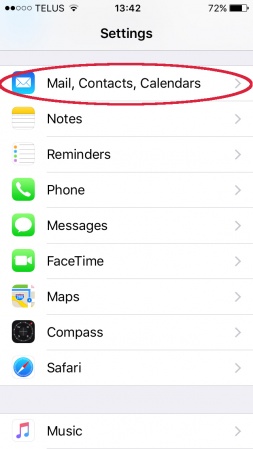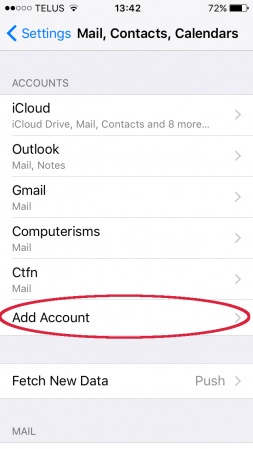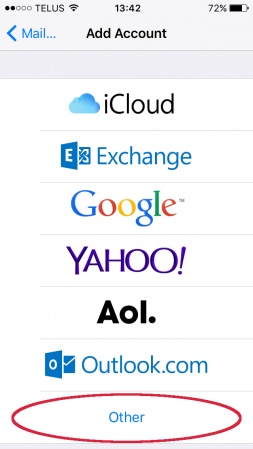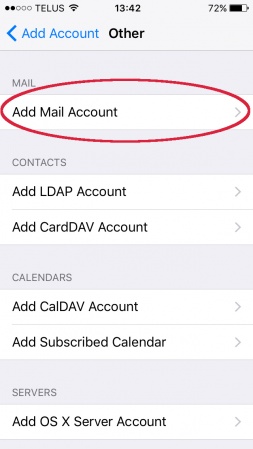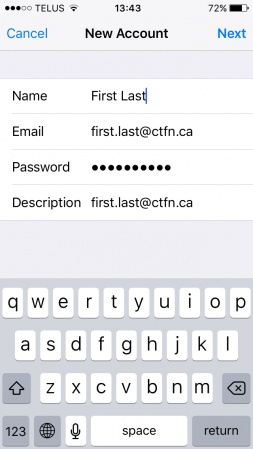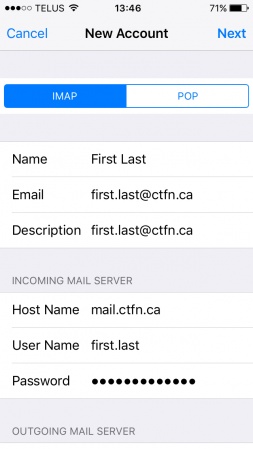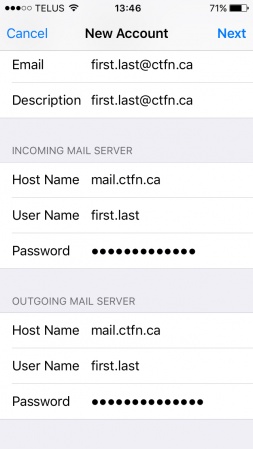Email: Difference between revisions
Jump to navigation
Jump to search
No edit summary |
|||
| (2 intermediate revisions by 2 users not shown) | |||
| Line 58: | Line 58: | ||
*SMTP: Server:[[Domain Substitution|mail.yourdomain.tld]] | *SMTP: Server:[[Domain Substitution|mail.yourdomain.tld]] | ||
**Port 465: With Authentication using incoming user/pass and SSL/TLS | **Port 465: With Authentication using incoming user/pass and SSL/TLS | ||
***Our email hosting uses Port 465 and SSL/TLS for SMTP | |||
***Our email hosting uses Port | |||
*Thunderbird Users: our mail servers are set up in a way that Thunderbird should find all this information automatically, all you need to do is enter your Name, Email Address, and Password in the Add Email Account Wizard. | *Thunderbird Users: our mail servers are set up in a way that Thunderbird should find all this information automatically, all you need to do is enter your Name, Email Address, and Password in the Add Email Account Wizard. | ||
*Outlook Users: Outlook may not be able to find this info automatically, so you may have to key it in manually. | *Outlook Users: Outlook may not be able to find this info automatically, so you may have to key it in manually. | ||
==Server Side Filters== | ==Server Side Filters== | ||
Latest revision as of 16:53, 3 June 2021
Instructions For Configuring Email Clients

|

|
|
| Thunderbird | Outlook |
How to setup your email on iPhone
Email Settings
Computerisms Hosted Email
- IMAP: configure using SSL (port 993) Server: mail.yourdomain.tld
- POP3: configure using SSL (port 995) Server: mail.yourdomain.tld
- SMTP: Server:mail.yourdomain.tld
- Port 465: With Authentication using incoming user/pass and SSL/TLS
- Our email hosting uses Port 465 and SSL/TLS for SMTP
- Port 465: With Authentication using incoming user/pass and SSL/TLS
- Thunderbird Users: our mail servers are set up in a way that Thunderbird should find all this information automatically, all you need to do is enter your Name, Email Address, and Password in the Add Email Account Wizard.
- Outlook Users: Outlook may not be able to find this info automatically, so you may have to key it in manually.
Server Side Filters
Server Side Message Filtering can be used by any program supporting the SIEVE protocol
- NOTE: Computerisms has Server Side Filtering disabled by default, please contact us to enable it
- Enabling this feature will disable the ability to do forwarding and autoreplies in Qmailadmin
- Qmailadmin is easier to use, Server Side Filtering provides more features and control
- The Sieve Protocol is a platform independent method of filtering your mail
- This is commonly done using "Message Rules" or similar on email clients such as Thunderbird and Outlook, but your program needs to download the messages in order to filter them
- In this case, the server does the filtering so it can drop the mail in the correct folder before your email client knows it is there
- Sieve Protocol also allows for other features, such as Out of Office replies, forwarding, and copying.
- Be sure to include rules pertaining to BULK mail if you subscribe to mailing lists and want to use Out of Office replies
- RoundCube can be used to implement Server Side Filters
- SquirrelMail also supports Server Side Filtering, just click on the coffee filter icon after you log in
- There is also a a Thunderbird Plugin, but it's a bit complicated to use
